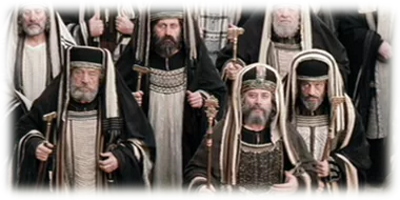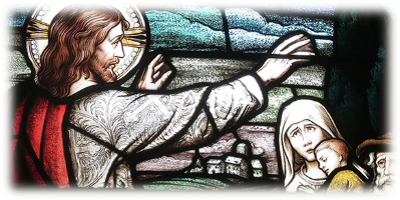Then Jesus spoke to the multitudes and to His disciples, saying, "The scribes and the Pharisees have seated themselves in the chair of Moses; therefore all that they tell you, do and observe, but do not do according to their deeds; for they say things, and do not do them". Matthew 23:1-4 (NASB)
This passage has often been debated by Torah observant believers and their attitude toward Rabbinic Judaism. The Rabbis are the descendents (not physically) of the Pharisees and as this passage appears to say that the followers of Yeshua are to do and observe all that they, the Pharisees and Rabbis, say to do and observe.
This brings up an interesting catch-22 situation. If Yeshua is telling his followers to listen to the Rabbis, the Rabbis today say that no one should follow or listen to Yeshua as he never existed, or was the illegitimate son of a Roman soldier and Mary.
Another catch-22 is that the Torah tells us not to add to the commands of God yet, the pharisees and Rabbis have added many commands to the Torah. Just as one example two candles are lit before the Shabbat begins and the following prayer is said; "Blessed are you, O Lord our God, King of the universe who has commanded us to kindle the Shabbat lights". No where in the Torah is this commanded but it is commanded by the Rabbis and according to the Rabbis the teachings of the Rabbis are from God. Yeshua seems to instruct his followers to follow these teachings of the Rabbis yet the Torah says that we are not to add commands to the Torah.
Yeshua also seems to contradict himself in this passage as he first tells his followers to do what they say but don't do what they do and in the following verses he condemns the teachings and practices of the Scribes and Pharisees and calls them hypocrites.
The book of Matthew that we have today is written in Greek but there is much evidence that the original Matthew was written in Hebrew. Even in the passage above we can see some of this evidence. The passage begins with, "Then Jesus spoke to the multitudes and to His disciples". In English, and Greek, two groups are identified, the multitude and the disciples. But this is an Hebraism where one thing, event or idea is expressed in two ways. He is not identifying two groups, but instead, one group defined in two different ways. A more accurate translation of this would be "Then Jesus spoke to the multitude of disciples".
After studying this verse in depth, I concluded that the only possible solution was that an error occurred when the Hebrew text was translated into the Greek. It was not until recently that an article by Nehemia Gordan, A Karaite Jew, that showed beyond a resonable doubt, that my assumption is probable.
There is a Hebrew Matthew in existence today called the "Shem Tov Matthew". This book, very similar to the Greek Matthew except that it is in Hebrew. The actual origins of this book is not known but is known to exist since the 1400's and is claimed to be much older than that. Below is Matthew 23:2,3 from the "Shem Tov Matthew".
לאמר על כסא משה ישבו הפירושים והחכמים. ועתה כל אשר יאמר לכם שמרו ועשו ובתקנותיהם ומעשיהם אל תעשו שהם אומרים והם אינם עושים.
The key word in this passage is underlined and it is "yomar" meaning "he tells". The Hebrew for "they tell" is "yom'ru" and the only difference between the two is the letter "vav" added to the end of the word to form "yom'ru". If we replace "they tell" in the passage in question with "he tells" we now have:
The scribes and the Pharisees have seated themselves in the chair of Moses; therefore all that he tells you, do and observe, but do not do according to their deeds; for they say things, and do not do them.
Who would be the "he" in this passage? Pharisaic/Rabbinic Judaism has added mountains of laws and commands onto the original Torah of Moses and it is this practice which Yeshua had a problem with throughout his ministry. Yeshua is informing his followers that while the Pharisees/Rabbis sit in the authority of Moses, his followers should do what Moses taught, not what the Pharisees/Rabbis are teaching.

Like what you’re discovering? Continue the journey from Bible reader to translator.
|






